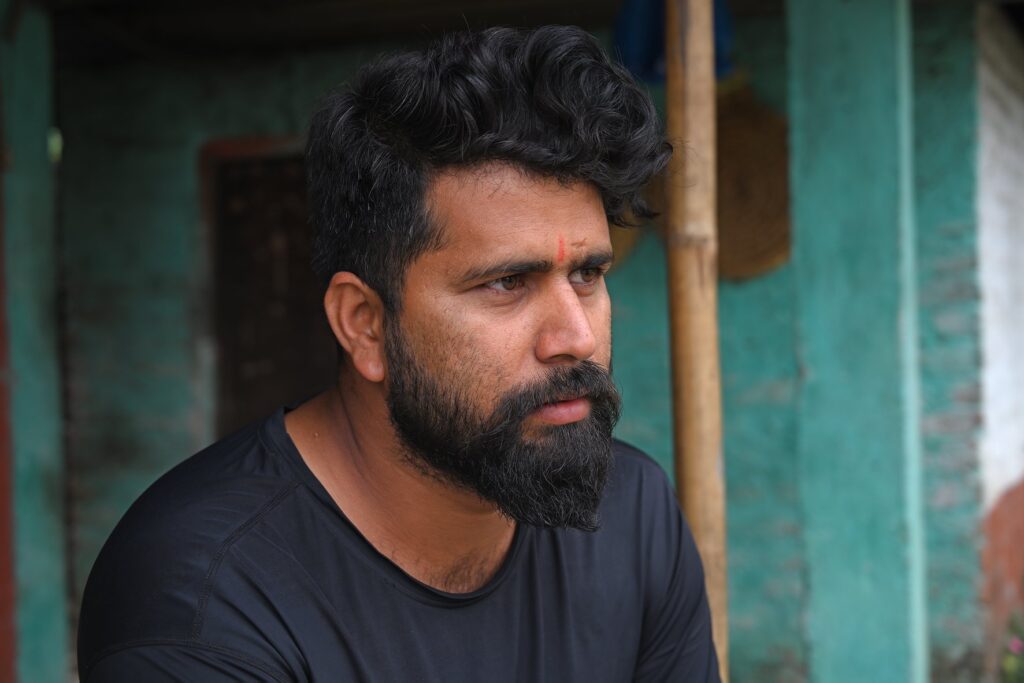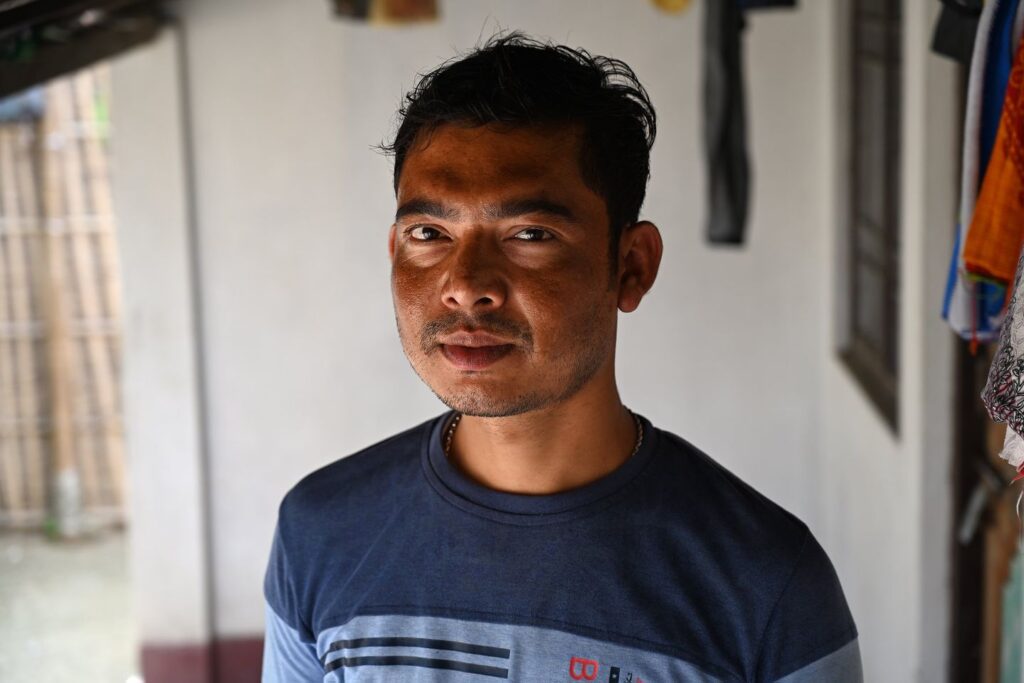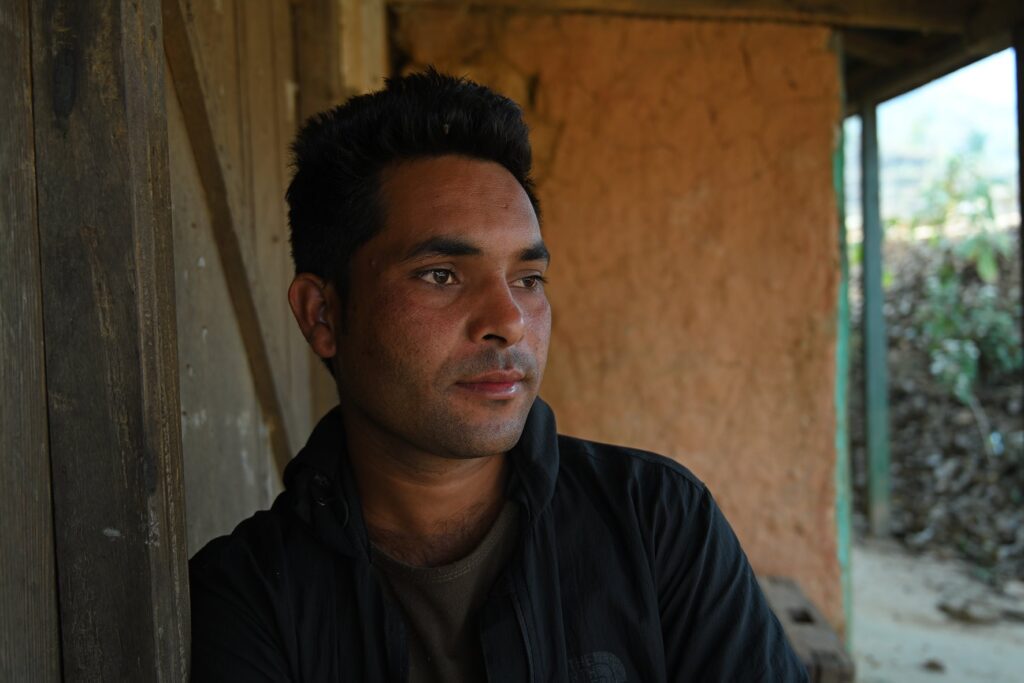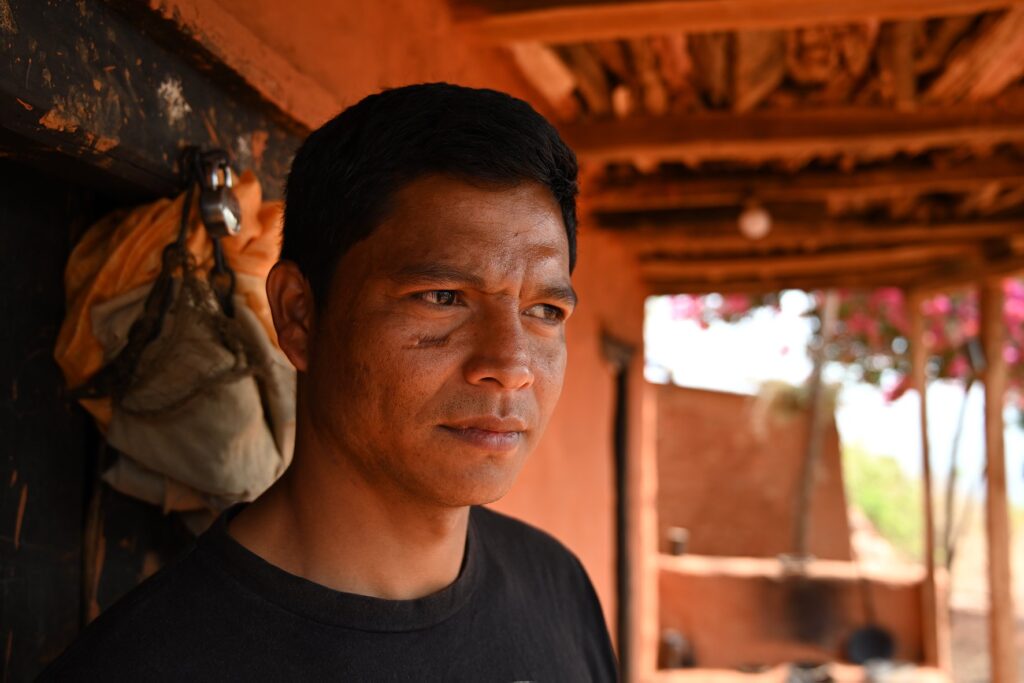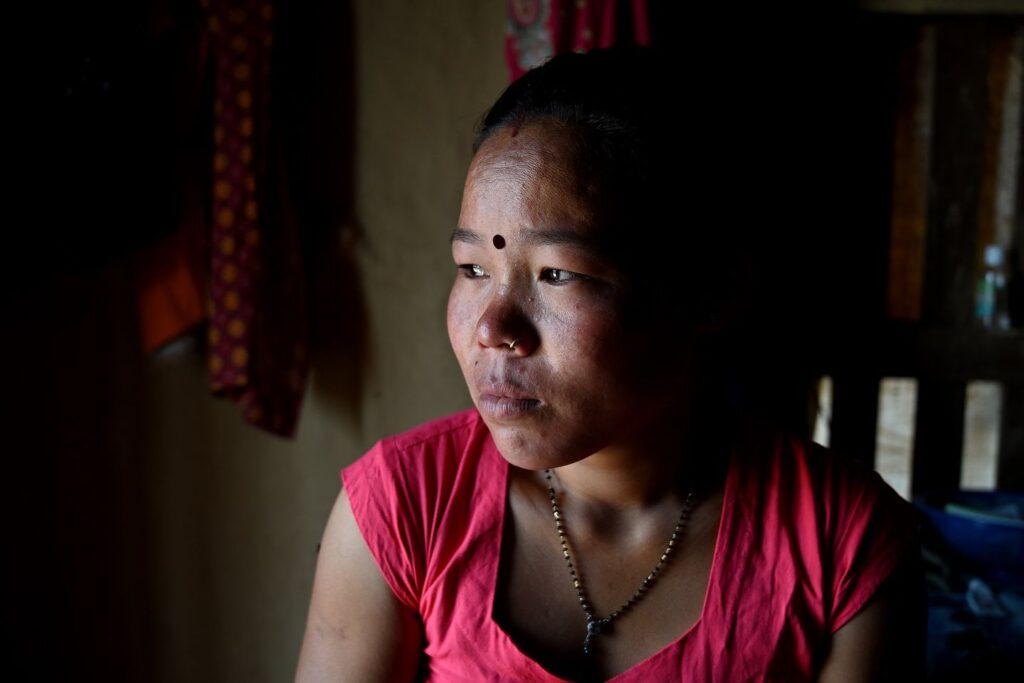
Laxmi Sunar Simta 4, Surkhet
“When I was growing up, I remember everyone aspired to go to India to work. Working in our village meant working with livestock and in the fields. But not everyone was lucky to have either. Even with a very sparse population, there were not many job opportunities. There were no factories to earn a livelihood. Working in a village also meant you were stuck in time. There was no money, no transactions. You just grew your food, ate it and lived to survive.
So, many villagers wanted to migrate to India – mostly men. They would leave their families behind. They would leave their young brides and little infants behind. Their motivations to work in India: better homes, stronger roofs and a bright future for their children. I was only 16 when I got married. And I was one of those young brides who was left behind to take care of the livestock and raise the children. I remember my father and mother telling me, ’This boy works in India. He makes good money. He will keep you happy. I was naive and did not have much of a say. I did not utter a single word. So, they sent me to his home. How can I express how difficult it was for me in this new place which I was expected to call home? He was not a bad man, that is not what I am saying. I am saying that I could not spend much time with him after marriage. I was left with his parents and his livestock. He spent only a few weeks with me and then left. Although he sent money back home, he only returned again when I gave birth to my eldest daughter. He was happy and I was happy.
Our family was growing. A few years later, I had one more daughter and a son. I raised them. The villagers raised them. My husband tells me that he does want to spend time with us, but, because there are no opportunities for him here, he has work in India. Once he tried to stay and look for a job here. Many months passed and slowly he became sad. Then we spoke and came to the conclusion that it was best for him to go and work in India. Work would keep him away from his thoughts and, as the children grew, the expenses of their education needed to be covered. Years and years have since passed. My daughters got married and now my son is a young man going to school.
So yes, he has been away his entire life. Living and working in India and returning to us when he can. Sometimes it’s a year, sometimes even more. Recently he came home immediately after the lockdown was loosened. He quarantined in the school nearby for 12 days. No one really understands how this pandemic came to be. When he came home after 12 days, he stayed in the house with us for some time. He told me how many of his friends got infected by the virus and that he was lucky to return home healthy. We were all happy, especially our son. He was worried because he read things on his phone and heard things from his school about the virus, none of which were good. When his father came back, he was very happy.
When my husband returned home this time, he did not bring any money with him. He told me that the employers did not give him the wages he earned because their business was severely hit by the lockdown. All he received was some money to cover travel expenses. So, we did not have a steady flow of income during and after the lockdown. Imagine your handful of rice being snatched away while you are eating. That is exactly what happened. How long will the 10 kilos of rice last?
If men and women could find work here, then there would be very few leaving home to earn money. There would be fewer of us lonely women. And during these difficult times, problems for migrants increase 100-fold. The virus takes away their jobs. They are at risk of getting sick. And on top of that, their source of income is shut down. 10 kilos of rice in relief is never enough. They need work where they can apply their learned skills. They need healthcare, free hospitals and schools for their children that don’t demand too much for uniforms and books. But that is not the case. I saw the same thing repeating again. As the lockdown eased, there were no jobs and thus no money. My husband was lost in his thoughts. Although we managed to send our son to school and eat two meals a day, things were slowly becoming difficult.
So, before it could get any worse, my husband decided he was going to knock on his employer’s door in India one more time. He thinks he will take him back and, if he does, he will start earning money again.
This morning as I carried water to my house, I thought of my husband. He has left for India again. It has been 5 days and I have not heard from him yet. I hope he is safe. I hope he got his job back. I hope he calls soon.”






